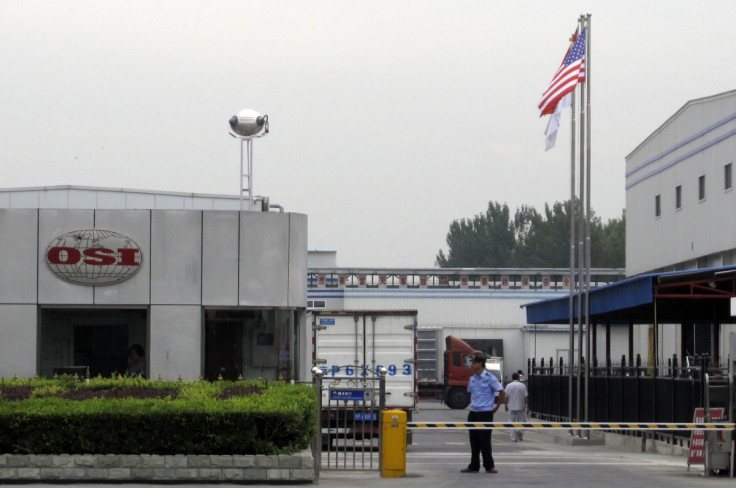Husi Food's US Parent Apologises For China Food Scandal As Regulator Expands Probe

Sheldon Lavin, chairman and chief executive of US-based OSI Group, which owns Shanghai Husi Food that is at the centre of a recent China food scandal, has apologised to Chinese customers.
"What happened at Husi Shanghai is completely unacceptable. I will not try to defend it or explain it," Lavin said in a statement.
"I sincerely apologise to all of our customers in China. We will bear the responsibility of these missteps, and will make sure they never happen again."
He added that the company is sending its food experts to work with the staff in China.
Shanghai's Food and Drug Administration earlier said it seized more than 5,000 boxes of expired meat from warehouses of Shanghai Husi Food after a raid, and police detained five employees at the firm, including its quality manager.
The Chinese local media earlier reported that Shanghai Husi Food sold chicken and beef past their expiry dates to international food chains including McDonald's, KFC and Pizza Hut. KFC and Pizza Hut are owned by US-based Yum Brands.
Earlier, operations at Shanghai Husi were suspended and all of its meat products were ordered to be taken off the shelves.
Nine companies including KFC, McDonald's, Burger King and Papa John's have used products from Shanghai Husi.
Following the outbreak of the scandal, the companies apologised to Chinese customers and said they were taking the products concerned off the shelves.
The Shanghai Municipal Food and Drug Administration said that it had questioned 581 food-related facilities that are suspected of using expired meat from Shanghai Husi.
It also demanded production, quality control and sales records from OSI and ordered McDonald's to seal over 4,500 boxes of suspected meat products and Yum's Pizza Hut to seal over 500 boxes of beef.
Meanwhile, China's food watchdog said it would inspect all of parent OSI's sites around China to see if enough has been done to ensure food safety, which has been a serious issue in China ever since the 2008 milk scandal when infants fell ill or died after consuming tainted milk powder.
© Copyright IBTimes 2025. All rights reserved.






















